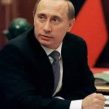
KREMLIN SABER RATTLING INCREASES AHEAD OF SCO SUMMIT
Publication: Eurasia Daily Monitor Volume: 4 Issue: 150
By:

Last week Russian President Vladimir Putin, while meeting activists and leaders of pro-Kremlin youth movements, used rather bizarre language to describe Russia’s standoff with Great Britain over the murder of former spy Alexander Litvinenko in London last November. According to the official Kremlin website, Putin dismissed British calls to extradite Andrei Lugovoi, the man accused of poisoning Litvinenko with polonium-210, as “an obvious vestige of colonial thinking.” Putin urged the British “to have their brains fixed.” Putin accused Britain of giving asylum to “30 persons we accuse of serious crimes.” He also dismissed any Western criticism of “problems with democracy in Russia” as deliberate slander by people who “babble as ordered, as they are paid to” (www.kremlin.ru, July 24).
Putin met with the selected pro-Kremlin youth at Zavidovo, a hunting retreat in the Tverskoi region northwest of Moscow that was popular with Kremlin leaders in the communist era. After speaking in the presence of journalists, Putin reportedly dined on kebabs with his guests (Kommersant, July 25). The casualness of the meeting may somewhat explain Putin’s choice of vocabulary.
The next day Putin received Russian military and intelligence leaders in the Kremlin. In a prepared speech, Putin described plans to build two new U.S. bases for temporary deployment of brigade-size forces in Bulgaria and Romania — countries that do not border Russia — as a “global threat.” Putin also defended his decision to abandon the Conventional Forces in Europe Treaty. “Under the CFE the Baltic nations [Estonia, Latvia, and Lithuania] are still considered [part of] the Baltic military district — so maybe I should appoint one of you as its commander?” Putin asked his generals, using the same sarcastic tone on display at Zavidovo (www.kremlin.ru, July 25).
Putin once again stated his opposition to U.S. plans to deploy missile defense systems in Poland and the Czech Republic, noting, “Elements of the U.S. strategic arsenal will be deployed in Europe for the first time.” To counter this new threat Putin ordered military leaders to “strengthen the battle readiness of the Army and Navy, to procure new modern weapons.” The enhanced capabilities of the troops “must be tested during exacting exercises.” In return, added Putin, the state will raise military pay and build more housing for officers.
Putin commended Russia’s foreign intelligence service (SVR) and ordered the SVR to “increase its capabilities, as demanded by the international situation and internal political interests.” The latter point about “internal political interests” sounds peculiar, since the SVR is, by definition, a foreign intelligence service. It may be a veiled order to enhance operations to silence exiled critics of the regime (www.kremlin.ru, July 25).
As Putin ordered, since last month the Russian military has been conducting numerous exercises in air, on land and sea. Russia’s only aircraft carrier, the Kuznetsov, has left port for a short sail in the Barents Sea after another lengthy period to repair problems that have plagued the ship since it had been launched in the 1980s. The Kuznetsov air wing of Su-33 fighters is preparing to fly from the deck once again after a one-and-a-half year recess (VPK, July 25).
Last month Russian strategic bombers were flying on exercise missions to the North Pole, near Alaska, and down the coast of Norway towards Britain. Royal Norwegian Air Force F-16s were reported to have intercepted two Tu-95 “Bear” bombers on July 18, and two RAF Tornados from Britain’s rapid reaction force scrambled to meet the intruders as they approached British airspace, but the Bears turned back home and avoided the Brits. The incident was reported as Britain and Russia were expelling each other’s diplomats over the Litvinenko case (AFP, July 18).
The Air Force press service chief, Colonel Alexander Drobyshevsky, told me the reported flight of the two Bears toward a point north of Britain was in fact the fifth sortie on that course in a week. He added that the exercise had nothing to do with Britain and was planned six months in advance.
Indeed, Britain was not the aim. Russian strategic bombers can, if need be, fire their X-55 nuclear armed 3,000-kilometer range cruise missiles at targets in Britain while over Russian soil. The present Russian strategic bomber exercises were to train the crews to fly into positions (north of Britain, the North Pole, off Alaska) from which they could fire their X-55s at targets in the continental United States. In the 1990s, such exercises happened rarely. Today as tensions with the West grow and our Air Force has more money to buy gas, they happen regularly.
The main military exercise of this summer will in August — the Shanghai Cooperation Organization anti-terrorist “Peace Mission 2007” near Chelyabinsk in the Ural region. About 6,500 troops and 80 aircraft from China, Kazakhstan, Kyrgyzstan, Russia, Tajikistan, and Uzbekistan will be involved. Putin and the leaders of the other five SCO member-states plan to observe the conclusion of the exercise after a summit of the SCO in Bishkek, the Kyrgyz capital (see EDM, July 27).
As Moscow’s relations with the West deteriorate, the Kremlin is doing its best to seek allies and is building up the SCO to counterbalance NATO. In propaganda terms, the “Peace Mission 2007” will be used to the full, but are the other SCO nations ready to line up against NATO? China is indeed worried about Islamist terrorist threats in Central Asia and concerned with Uighur nationalism and Islamism in its Xinjiang Uighur Autonomous Region. But no one in the SCO seriously wants a genuine confrontation with the West to support Putin over the Litvinenko case or insignificant bases in Bulgaria or Rumania. Putin will most likely be left to huff and puff alone.




